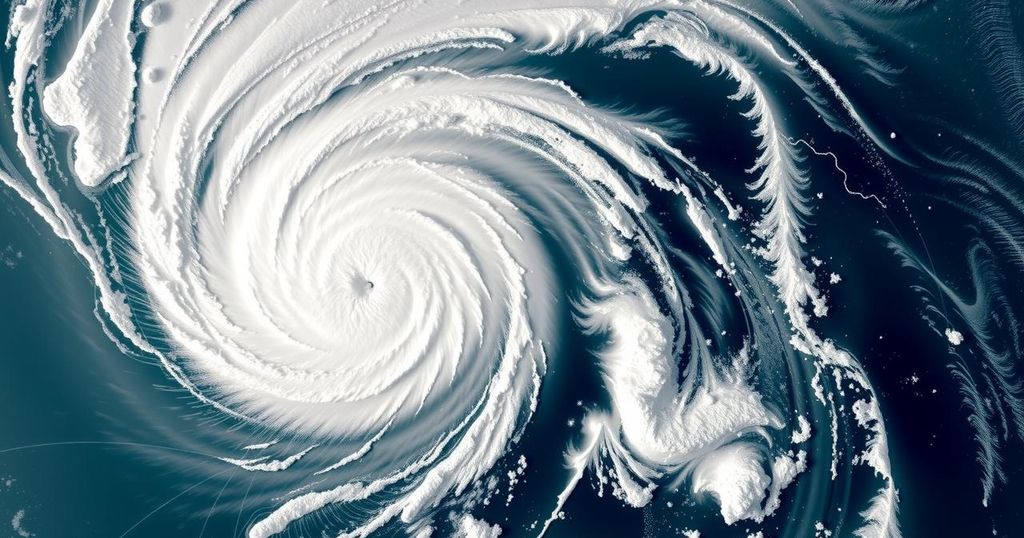Tropical Cyclone Dikeledi has caused fatalities in Madagascar and significant flooding in Mayotte. Originating as a disturbance and strengthening into a storm, it made landfall on January 10, leading to heavy rainfall and mudslides. Dikeledi is expected to reintensify as it moves southward, posing further risks to surrounding regions.
Tropical Cyclone Dikeledi has tragically claimed the lives of three individuals in northern Madagascar and severely impacted the archipelago of Mayotte. Originating as a minor tropical disturbance between Indonesia and Australia on January 2, the system evolved into a significant depression over the subsequent week. Eventually, it strengthened into a moderate tropical storm and was designated Dikeledi after achieving maximum sustained winds of 74 mph in the Indian Ocean.
Dikeledi made landfall on January 10 just north of Madagascar, inflicting heavy rainfall and strong winds, which resulted in the unfortunate fatalities. As the storm moved forward, it weakened into a tropical storm and traversed to the Mozambique Channel, bringing heavy rains and triggering mudslides on Mayotte, where an estimated 14,500 individuals sought refuge in emergency shelters.
This week, forecasts indicate that Dikeledi is likely to shift southward down the Mozambique Channel and may reintensify into a tropical cyclone, potentially bringing severe weather to Mozambique, including heavy rain and thunderstorms. It is predicted to evolve into an intense tropical cyclone by Wednesday and Thursday, with wind speeds potentially exceeding 100 mph as it skirts the southern edge of Madagascar.
The occurrence of Cyclone Dikeledi highlights the ongoing challenges posed by tropical cyclones in the Indian Ocean region. Such weather systems typically develop from disturbances that arise in warm ocean waters and can escalate rapidly into significant storms, causing extensive damage and loss of life. Notably, Madagascar frequently experiences cyclonic systems due to its geographical positioning, which makes it susceptible to climatic events originating from the Indian Ocean. The region’s previous exposure to Cyclone Chido in December illustrates the compounding impacts of consecutive cyclonic activities on local communities.
In summary, Tropical Cyclone Dikeledi has had devastating effects on Madagascar and Mayotte, leading to loss of life and significant displacement. The storm exemplifies the vulnerabilities of coastal populations to extreme weather phenomena and underscores the need for disaster preparedness. As Dikeledi continues its trajectory, further observations will be critical in mitigating impacts on affected areas, particularly in Mozambique, where residents may face severe weather conditions in the coming days.
Original Source: www.theguardian.com






